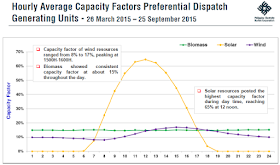Here are some tweets from #efnasia2016 and my own thoughts about the event.
Protection of human rights is part and parcel of EU policy
– Walter van Hattum, EU Delegation to the Philippines.
It's a responsibilty of businesses to respect human
rights... It is state duty to protect and defend human rights in its territory.
Nobody can seriously suggest that businesses can opt in
and out of respecting human rights as they wish... There is legal obligation
for businesses to respect HR.
Businesses should be as transparent as possible so they
will be less likely to be attacked by false news. Business leaders are often
uncomfortable explaining to the public how they work. It's understandable but
unwise. -- Markus Leöning, former Himan Rights Commissioner in Germany.
Increasingly populist goverments a threat to human rights
and economic freedom. The pendulum has swung as globalization has failed in its
promises to those who have lost out in its benefits. Food for thought. -- Frank
Largo
For me, among the important human rights of the people is
freedom to choose in the market place, freedom to sell or not sell, freedom to
buy or not buy. Political human rights like the right or freedom from theft (especially organized criminals), murders, prosecution and
harassment, that is where the state should come in.
A minimal government focused on enforcing the rule of
law, enforcing contracts between and among people, is consistent with economic
freedom and human rights protection. That minimal govt should have no business
creating and expanding lots of endless welfarist programs. Prosperity is not an
entitlement or privilege. Lazy and irresponsible have no right to a prosperous
life, they deserve poverty. Politically incorrect statement, as usual.
Rule of law means the law applies equally to unequal
people. So the law should apply to both rich and poor people, to big/giant and
small firms. A law or contract can be written, verbal, done by govt or private
entities. Basic human rights then means that people have access to such
equality before the law.
Below,
People's definitions of human rights vary. What may be HR violations to some can also be another's sole income source... Definitions of human rights vary. What may be HR violations to some can be another's sole income source. -- Wan Saiful Wan Jan
Stakeholder values, not just
shareholder values. --
Barun Mitra tweets:
Business of business is indeed business! Inclusive of
profitability for investors, benefit to consumers, add values to society.
Better protection of human rights, improved environmental
quality, higher sense of justice, necessary social value additions.
Value added products, economic and social, become
affordable with prosperity, and necessity in a free competitive market.
Implentating Rule of law carries cost, level of effective
enforcement has to be affordable, economically socially politically. #EFNAsia2016
I think corporate branding will help global firms stay
the course in HR and econ freedom protection, respecting #ruleOfLaw. Firms
would dislike to be associated with bad products, bad services, bad corporate
image. So they will try to be as transparent as possible, to be accountable to their products
and practices. Transparency is good protection vs negative image/attacks.
Session 2 Panel speakers: H.E. Franz Jessen of EU, Dr.
Lee Taekyu of KERI, and Atty. Arpee Santiago of Ateneo Human rights Center.
Govt and countries don't trade, individuals and
businesses do. Govt negotiating trade treaties leading to anti-trade backlash.
Free trade is voluntary, so win win. Govt negotiations
may liberalise trade, but legitimises govt in trade n economy, corruption.
Environment, labour or human rights standards in national
trade treaties, focus on outcomes, give advantage to large, richer cos!
Society / govt benefit most if they adopt unilateral free
trade. All politics is local, a local decision will minimise backlash.
Govt negotiating trade, inevitably adopt export is good,
import is bad outlook. Free trade is beneficial when govt has no role.
Access to internet can't be a "Right".
Political rights are negative rights. Any +ive right paid for by others can't
be a RIGHT.
TPP may be good agreement, but has lost legitimacy
because govts. no longer carry credibility among large sections of people. --
Barun Mitra
As usual, I agree with Barun's ideas and observations: unilateral trade liberalization; countries and governments do not trade with each other, people do; so governments, national and multilateral, should step back from trade negotiations as much as possible. Let companies and people organizations negotiate with their suppliers and consumers abroad and keep prices low via low or zero tariff, minimal non-tariff barriers.
See also: EFN Asia 60, Conference 2014 in Hong Kong, part 5, April 03, 2016
EFN Asia 61, Panel on TPP at Jeju Forum 2016, June 14, 2016
EFN Asia 62, Program for Conference 2016, Manila, November 20, 2016






































